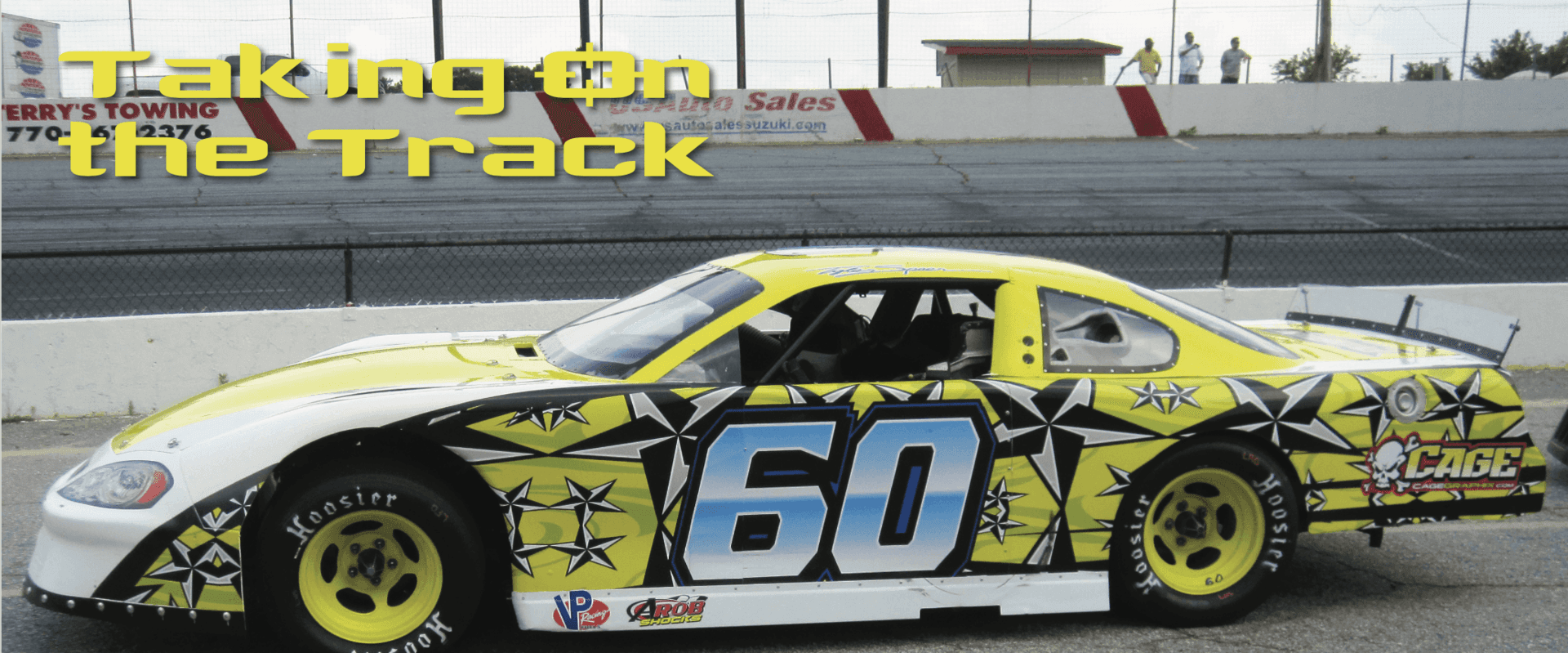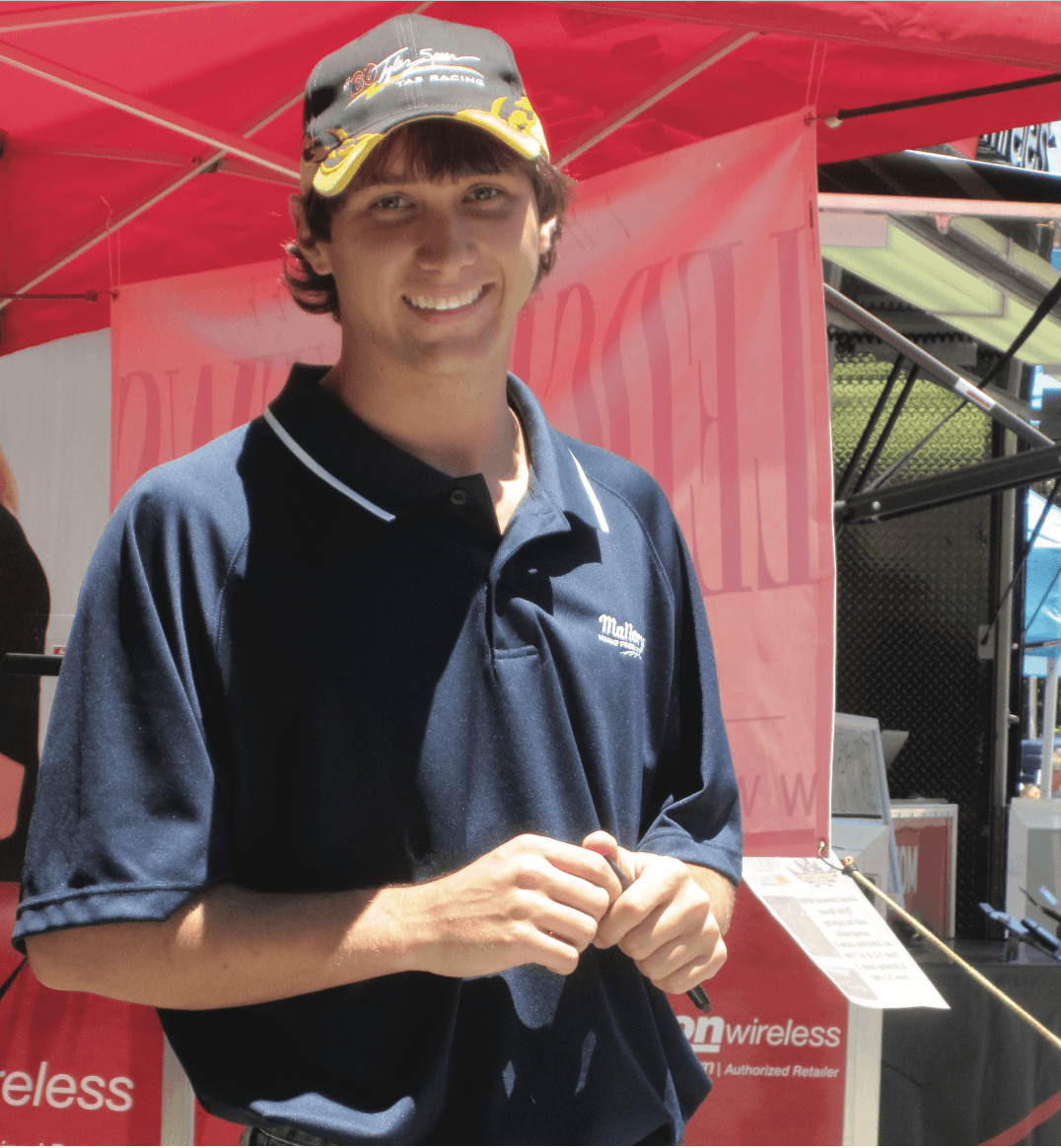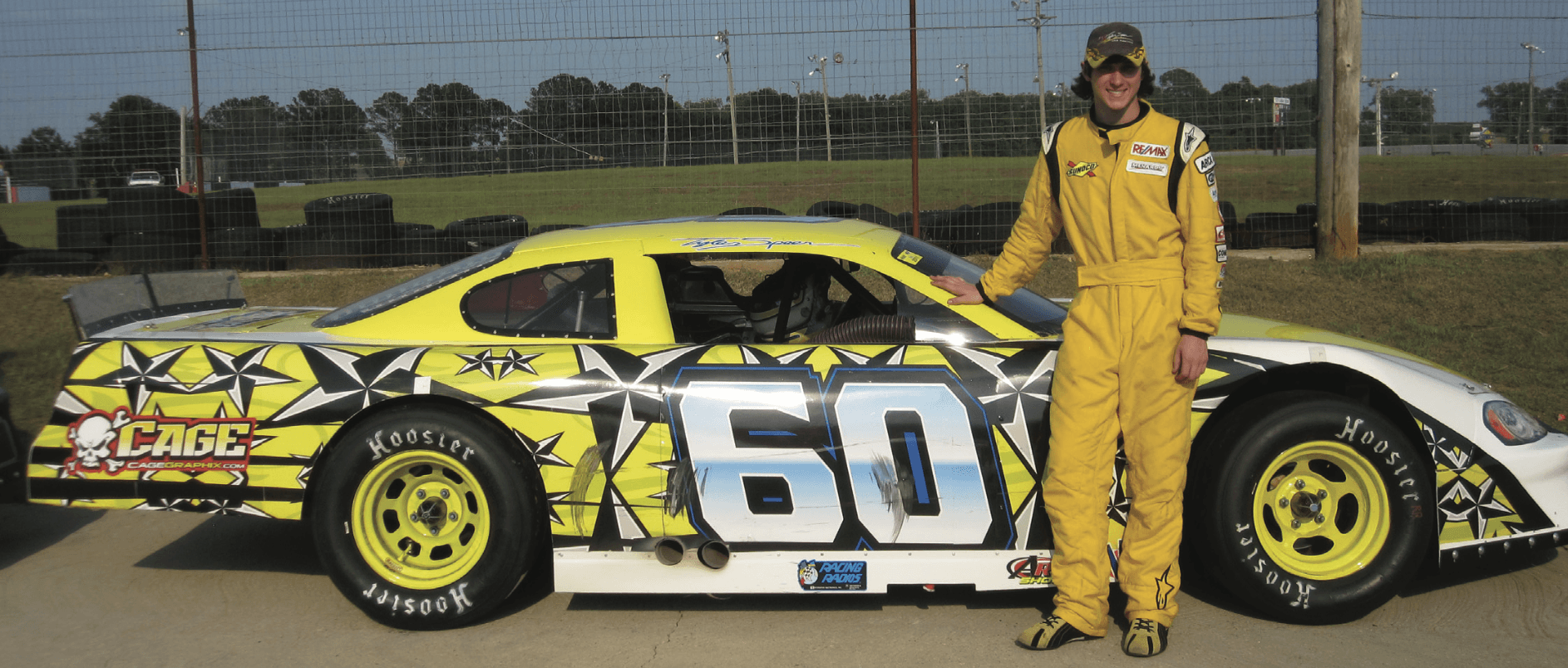Taking on the Track
- By Tyler Speer
- •
- 02 Nov, 2012
- •

Most people aren’t whizzing around a dirt race track on a mini motorcycle at five years old. Tyler Speer has been flying around left turns for 16 years and has no plans of stopping. Starting motor racing at the keen age of five, Speer learned quickly that not everyone was cut out for it. His friends dropped the sport after multiple broken bones, worrisome mother’s requests and insufficient funds for bikes, motors and doctor bills.
“I raced motocross even after all of my friends quit. When I was 12, my parents bought a go kart, so I raced it at the track across the street from our family boat shop,” Speer said. Racing has always been in his blood. Tim Speer, Tyler’s father, was an avid drag boat racer for many years of his life. Tyler said he attended his first race, one of his father’s boat races, unknowingly experiencing the loud events while in his mother’s womb.
Speer raced go-karts and fell in love with the speed and atmosphere of racing. Since his father owned and raced boats, Tyler was exposed to and became interested in all aspects of racing and motors. “After three years of racing go-karts and winning a championship, I switched to Allison Legacy cars, which is like a smaller version of a NASCAR Cup car,” Speer said. And the rest has been history. Wins, trophies, top five placements; sponsors flock to the TAS Racing team because of the unique qualities the team brings to the track.
In racing, a great deal of undocumented, but highly apparent, politics occur. Some racers, who are well endowed by their parents or sponsors, go into races without sufficient training and end up crashing, which potentially costs other racers their careers. It takes an immense amount of support and effort from an entire team to ultimately win and be successful.

Brigham, who started as Tyler’s father’s boating rival, inadvertently influenced the way Speer races because he challenged him to always think about what to do differently before the rest of the drivers figure it out. Racing is host to multiple strategies and strains, and constantly thinking sharply with immediate reaction is a vital key that Brigham revealed to Speer.
“If people knew how much technology, strategy, preparation and genuine hard work that go into racing they wouldn’t think it was a redneck sport,” said Speer on the common misconception that racing is simply going fast, turning left and essentially not getting anywhere at all. The physical demands of racing are high-risk as well; he wears a fireproof layer, the racing suit, a not-so-light helmet and gloves while holding his head up inside a 140-degree car. He lost up to 15 pounds in water weight during one three-hour race. Speer builds, repairs, prepares, secures partners and manages his racing all on his own.
Marketing also holds an immense role in racing. The logos you see on cars are not simply companies shelling out money to a fast set of wheels; they are advertising much the same way they advertise in a magazine. NASCAR fans are the prime example of how fan loyalty can result in product loyalty. Dan Macke, a 39-year-old attorney from Albuquerque, N.M., told the Sports Business Journal, “I’m realistic enough to recognize that the sponsors pay the bills. The sponsors put the cars on the track. The sponsors are responsible in large part for my enjoyment of the sport.” This realization is what makes it harder for drivers and teams to keep competing.
“If fans don’t come, races won’t happen,” Speer stated. What’s happening lately, Speer revealed, is that places such as Charlotte Motor Speedway sell out the camp grounds in the surrounding area for partiers who simply do not want to deal with the stands themselves. Yet, without fans to fill stands, tracks will not pay for races, races will not pay drivers and sponsors won’t support a car that doesn’t race. From Speer’s experience, “Knowing someone will always make it more enjoyable, and people want to be involved.”

Think of it this way: if a reality show about beauty pageants had no viewers, the show wouldn’t run and it would not get the funding from ads; the contestants wouldn’t get viewers or money. They pay a significant amount of money to go into these competitions and usually don’t get more than 30 percent of the money back in prizes. In racing, Speer said you can decide to pay more to enter a higher paying prize race or deal with the measly 15 percent you get back and the satisfaction of moving forward.
“Racing can take you to the lowest point you’ve ever been in your life, but then it can boost you up to the highest you’ve ever been. You just have to keep going,” said Speer on what keeps him driven to continue with racing. Being active in outside activities also keep Speer focused on his future.
Speer continues to be a well-rounded KSU student while taking salsa dance lessons with his mother, since she is at the track as much as he is, drinking orange juice before a race for his past mentor Brigham, working with his father at their boat shop and preparing for races. Studying sales promotions and marketing enable him with a confidence and knowledge of how to approach a partner. “I want to give back and show my appreciation to the partners I have. I want to help them grow just as much as they want to help me, and that’s why we call them partners instead of sponsors,” Speer said. His pure drive to succeed, eagerness to learn, talent, and respect for his supporters are what make Speer stand out from the rest of the drivers.
”Southern Marine and Mallory Marine was the first sit-down meeting with a title partner, in which terms were discussed. Marketing class was really helpful in making that whole process, and the experience taught me to be at ease with big business people. They are just normal people,” said Speer on securing a solid partner for his team. Being a generally easy-going, conversational and polite guy can, in fact, get you far in this world.
Speer is a meticulously motivated individual who doesn’t let a detail go unobserved. His favorite racing number, 60, has a background story involving a 60-foot gap that he jumped; he will talk to anyone within relative distance walking in the same general direction because, “life’s too short not to meet new people” and he notices when people show up to a race. Speer is dedicated to bringing people and students to the races because it “benefits everyone involved.” He and his team are constantly creating ways to improve attendance, KSU spirit and involvement with racing. He wants to move forward in his racing career, and with his constant diligence “people won’t have a choice but to notice us, if they just give me a shot.”
ARTICLE BY: Traci Hendrix
Talon Magazine
